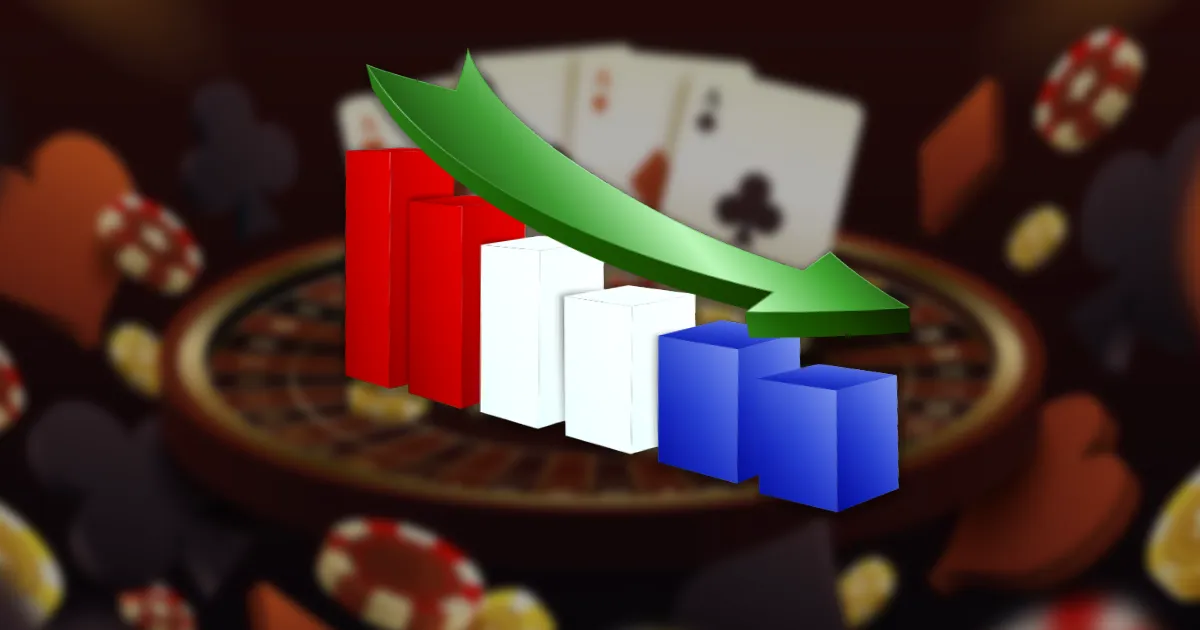In the Netherlands Gambling addicts is decreasing according to LADIS
In the Netherlands, data on addictions has been collected since 2006 in the “National Alcohol and Drugs Information System“. (LADIS) Their 2022 annual report shows that the number of people in treatment for a gambling addiction decreased by 7% compared to 2021. This concerns 1920 people. The average age remained the same, namely 35 years.
But what about their annual report in general? Let’s first take a look at the general data so that we can compare with the figures regarding a gambling addiction.
What do the general figures say?
- 61,100 people were treated for an addiction, the majority of which (44%) had alcohol problems as the main reason.
- Just like the year before, 73% of them were men. The average age there was 42 years.
- 25% of them were being treated for an addiction for the first time.
- 49% of them sought additional help in addition to their addiction.
It often happens that people seek help for an addiction, but there are multiple forms of addiction. The main problem then takes precedence. That is called the primary addiction. The other addictions are called secondary addictions. In 22% of the people treated for a gambling addiction, there was also a craving for alcohol. Gambling problems were the secondary addiction in only 1% of people treated for cannabis addiction.
What does the report say about gambling addiction?
- 1920 people were treated for this in 2022.
- 3%: Share in addiction care
- 87% men, 13% women
- 35 years is the average age.
- 17%: Share under 25 years of age
- 8%: Share over 55 years old
The 3% share is the same as the number of people treated for amphetamine addiction. After alcohol, the most common addictions were: Cannabis (16%), opiates (12%) and cocaine (12%)
A downward trend
The report notes a decline of 7%. There was also a decrease in 2021, but people then talked about general addiction care. New registrations were 10% lower than in 2020.
Quote from the LADIS annual report:
“These figures must be interpreted with caution, because people with gambling problems do not always ask for help from addiction care. There are also other places where they can go. It also often takes quite some time before people with problem gambling turn to addiction care.”
There are even experts who claim that a gambling addiction only surfaces after 7 years. The figures from the report concern people who have actually registered with an addiction clinic. But it is clear that there is a striking downward trend. In 2017, there was already a decrease in the number of treatments for gambling addiction. The share was the largest in 2018 at 4%. (2500 people)
“Stichting Informatie Voorziening zorg“, the manager of LADIS, wanted to use a survey to estimate the status of the legalization of online gambling since the end of 2021. That survey already predicted a decrease and the annual report also confirms this.
An important conclusion that we can link to this is that the share in addiction care remains modest at 3%, while 2022 was the first year that online gaming could be played legally in the Netherlands.
Trade association “Nederlandse Online Gambling Association” (NOGA) finds this very encouraging. They would like to see the figure of 1920 people who have sought help reduced even further using proportionate and targeted resources. Gambling should be safe, responsible, and provide entertainment. NOGA continues to work towards this together with its members.
Another trade association “Vergunde Nederlandse Online Kansspelaanbieders” (VNLOK), only founded in September 2021, is optimistic, because their employees also work every day to prevent people from getting into trouble, but to let them enjoy the game.
The chairman of VNLOK, Helma Lodders, says the following:
“Although the LADIS figures are not all-inclusive, they confirm the picture that only a small minority of gamblers develop an addiction. The challenge for government, healthcare institutions and online gambling providers is to maintain this downward trend in the coming years. and at the same time taking into account the majority of players who do not have problem behavior or gambling addiction. Any measures must be effective and proportionate to the problem. Good cooperation based on facts, figures and research is essential.”
Situation in Belgium
In the Netherlands, the duty of care is mandatory for operators and therefore the number of gambling addicts appears to be decreasing. In Belgium people want to keep them out of the streets. As a result, player protection can be compromised because players no longer know whether they are actually still playing with a licensed provider (which also provides player protection). The Belgian government may be able to gain inspiration from the approach taken by our northern neighbors, which is clearly paying off. The evidence is there. The operators are happy to commit themselves to this, because gaming fun and player protection should go hand in hand.

